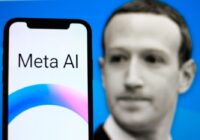I opened the discussion this morning with some thoughts about the issue that Americans are typically obsessed with over the 18 month period that precedes any presidential electoral campaign.
“So the presidential race is on,” I began, “and people are focusing on the polling trends. On the Democratic side, Bobby Kennedy II’s numbers are rising and Joe Biden’s are dropping, but, for the moment, there is officially no contest, since the party has already made its decision to nominate Biden, a decision that will be ratified a the Convention in fifteen months time. The one bit of interesting news in a year that will mark the 60th anniversary of the JFK assassination, is nephew Bobby’s contention that, based on ‘overwhelming evidence,’ CIA involvement in President JFK’s death appears to be ‘beyond a reasonable doubt.’
“What do you think? Is Kennedy right to accuse the CIA? Most Americans suspect he is. But the official position for the past 59 years is that Lee Harvey Oswald acted alone, a contention that the mainstream media have obediently followed for decades. They continue to ignore the story today, though that may change again this November when, presumably, all the archives will finally be released, a promise that has been consistently broken by presidents Trump and Biden since the official deadline for their release in 2017. So, what should Americans think now that this could become an election issue? But more significantly, why is it still possible to speculate about it as if it is a mere object of curiosity, given that by now all the massive evidence accumulated over the years should serve to clear up the mystery or at least reduce its ambiguity?”
“Regarding Bobby Kennedy II’s accusation of CIA involvement in President JFK’s death, it is important to note that the official position for the past 59 years is that Lee Harvey Oswald acted alone. However, there have been persistent doubts and conspiracy theories surrounding JFK’s assassination, with many Americans suspecting that the CIA or other government agencies were involved.
It is unclear whether Bobby Kennedy’s claim of “overwhelming evidence” supporting CIA involvement is accurate or not, as the specifics of his evidence have not been made public. However, the fact that this accusation could become an election issue suggests that it resonates with a significant portion of the American public.
As for why it is still possible to speculate about JFK’s assassination despite the abundance of available evidence, it is worth considering that there are often gaps in the historical record, especially when it comes to sensitive government operations. Additionally, conspiracy theories can persist even in the face of contradictory evidence due to cognitive biases, social dynamics, and the proliferation of misinformation.
Finally, it is worth noting that the release of all archives related to JFK’s assassination has been repeatedly delayed, despite promises from both the Trump and Biden administrations. This lack of transparency may fuel further speculation and conspiracy theories, and it underscores the importance of maintaining open access to government records in a democratic society.”
Everything Chad said was reasonable and worth pondering. I decided to add another thought.
“One interesting fact is that, though most people would consider it significant that the nephew of JFK is making these claims as a presidential candidate, the mainstream media are observing the same kind of silence as they respectfully did, and to a large extent continue to do, with Seymour Hersh’s very credible revelations about the sabotage of Nord Stream. The not very mainstream Washington Examiner was one of the rare papers to report it, though the article began with the standard disclaimer, recommended by the CIA itself back in the 1960s, that consists of referring to it as a ‘conspiracy theory.’ ‘Democratic presidential hopeful Robert F. Kennedy Jr., the nephew of former President John F. Kennedy, pushed a conspiracy theory on Monday suggesting the CIA played a role in the assassination of his uncle.’ What does this kind of media coverage tell us about another kind of conspiracy: the one that exists on a permanent basis between certain elements in the national security state and the ‘respectable’ media?”
Chad responded in the usual way, reminding the various parties – the media and its public – of their responsibility to report the truth and push for transparency, as if that constituted an acceptable denouement to a six decade old trauma. Chad did dare to mention what appears to be a doubtful ‘relationship’ caoavke of perverting democracy in ways that go far beyond identifying the culprit in an a long past assassination.”
“It is worth noting that the relationship between the media and the national security state has long been a subject of debate and scrutiny. Some critics argue that certain media outlets are too cozy with government officials and intelligence agencies, which can result in a lack of critical reporting and an uncritical acceptance of official narratives.
This is sometimes referred to as the ‘deep state’ or ‘shadow government’ conspiracy theory, which suggests that there is a secret network of individuals and institutions that control the government and manipulate events for their own benefit. While there is no concrete evidence to support this theory, it remains a popular idea among some segments of the population.
It is important to remember that media outlets have a responsibility to report the news objectively and without bias, regardless of their relationship with government officials or intelligence agencies. However, it is also true that the media can be influenced by outside factors, such as corporate ownership or government pressure.
Ultimately, it is up to the public to scrutinize the media and hold them accountable for their reporting. It is also important to seek out a diverse range of sources and perspectives to get a more complete picture of any given issue.”
“You say there is no ‘concrete evidence’ to support the theory of the unhealthy complicity some call the ‘deep state.’ But there is plenty of evidence. We are constantly learning about outrageous lies that have started or prolonged wars or justify mass surveillance. In front of a camera, former CIA Director Mike Pompeo boasted that at the CIA, ‘we lied, stole and cheated.’ That isn’t just evidence, it’s a smoking gun. Or rather a direct confession. The fact is no one in government can brazenly lie and get away with it without the complicity of the media. How can you reasonably assert that there is ‘no evidence’ when we’re swimming in it?”
Chad unsurprisingly agreed without agreeing.
“You are correct that there is ample evidence of government officials lying and manipulating events, and this has been well-documented over the years. Some of this evidence comes from whistleblowers, leaked documents, or official investigations, and it is often the result of journalists and other researchers doing their jobs and uncovering the truth.
My point was not to suggest that there is no evidence of government misconduct, but rather to caution against jumping to conclusions or accepting conspiracy theories without strong evidence. It is important to approach any claim or allegation with a critical eye and to evaluate the evidence carefully before making a judgment.
Regarding the role of the media, it is true that there have been instances where journalists have failed to hold government officials accountable or have been complicit in disseminating false information. However, it is also true that there are many examples of journalists and news organizations that have exposed government lies and corruption and have held officials accountable for their actions.
Ultimately, the relationship between the government and the media is complex, and there are many factors at play that can influence how the news is reported. It is up to each individual to evaluate the evidence and form their own conclusions based on the available facts.”
“Chad,” I concluded before promising to pick up the discussion at a later date, “every time we talk about major social issues and significant historical trends, you reduce the problem to the question of each individual’s choice of an appropriate behavior. I would maintain that what you are doing is highlighting a very interesting historical phenomenon: the deep cultural link between the consumer society – in which people are never allowed to exist beyond their status as an individual ego – and an abusive social system that invites the most assertive and aggressive individuals to pursue their private goals and then group together to collectively defend their interests. This is usually referred to as oligarchy, in many ways the opposite of the ideal of democracy. I’m looking forward to thrashing out that idea with you the next time we meet.”
*[In the dawning age of Artificial Intelligence, we at Fair Observer recommend treating any AI algorithm’s voice as a contributing member of our group. As we do with family members, colleagues or our circle of friends, we quickly learn to profit from their talents and, at the same time, appreciate the social and intellectual limits of their personalities. This enables a feeling of camaraderie and constructive exchange to develop spontaneously and freely. For more about how we initially welcomed Chad to our breakfast table, click here.]
The views expressed in this article are the author’s own and do not necessarily reflect Fair Observer’s editorial policy.
Support Fair Observer
We rely on your support for our independence, diversity and quality.
For more than 10 years, Fair Observer has been free, fair and independent. No billionaire owns us, no advertisers control us. We are a reader-supported nonprofit. Unlike many other publications, we keep our content free for readers regardless of where they live or whether they can afford to pay. We have no paywalls and no ads.
In the post-truth era of fake news, echo chambers and filter bubbles, we publish a plurality of perspectives from around the world. Anyone can publish with us, but everyone goes through a rigorous editorial process. So, you get fact-checked, well-reasoned content instead of noise.
We publish 2,500+ voices from 90+ countries. We also conduct education and training programs
on subjects ranging from digital media and journalism to writing and critical thinking. This
doesn’t come cheap. Servers, editors, trainers and web developers cost
money.
Please consider supporting us on a regular basis as a recurring donor or a
sustaining member.
Will you support FO’s journalism?
We rely on your support for our independence, diversity and quality.







Comment